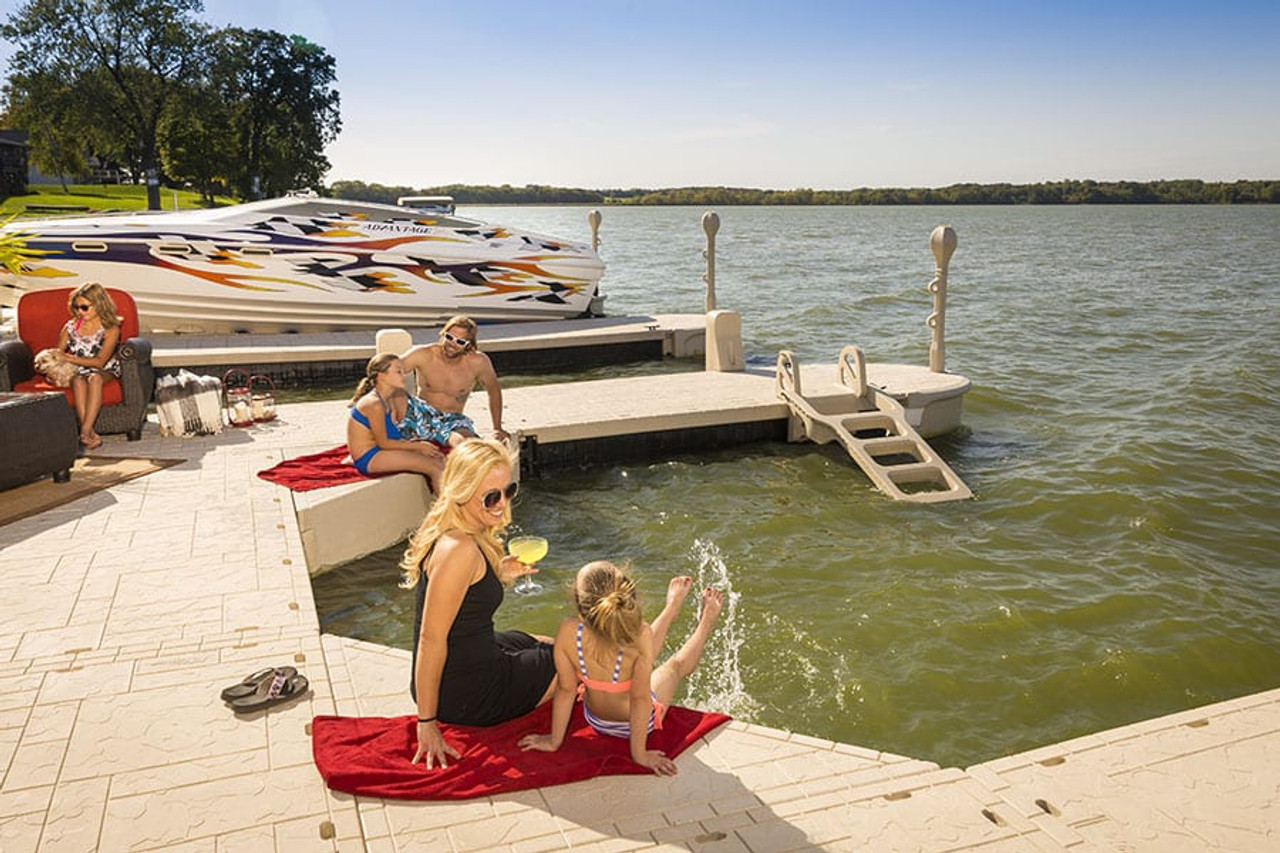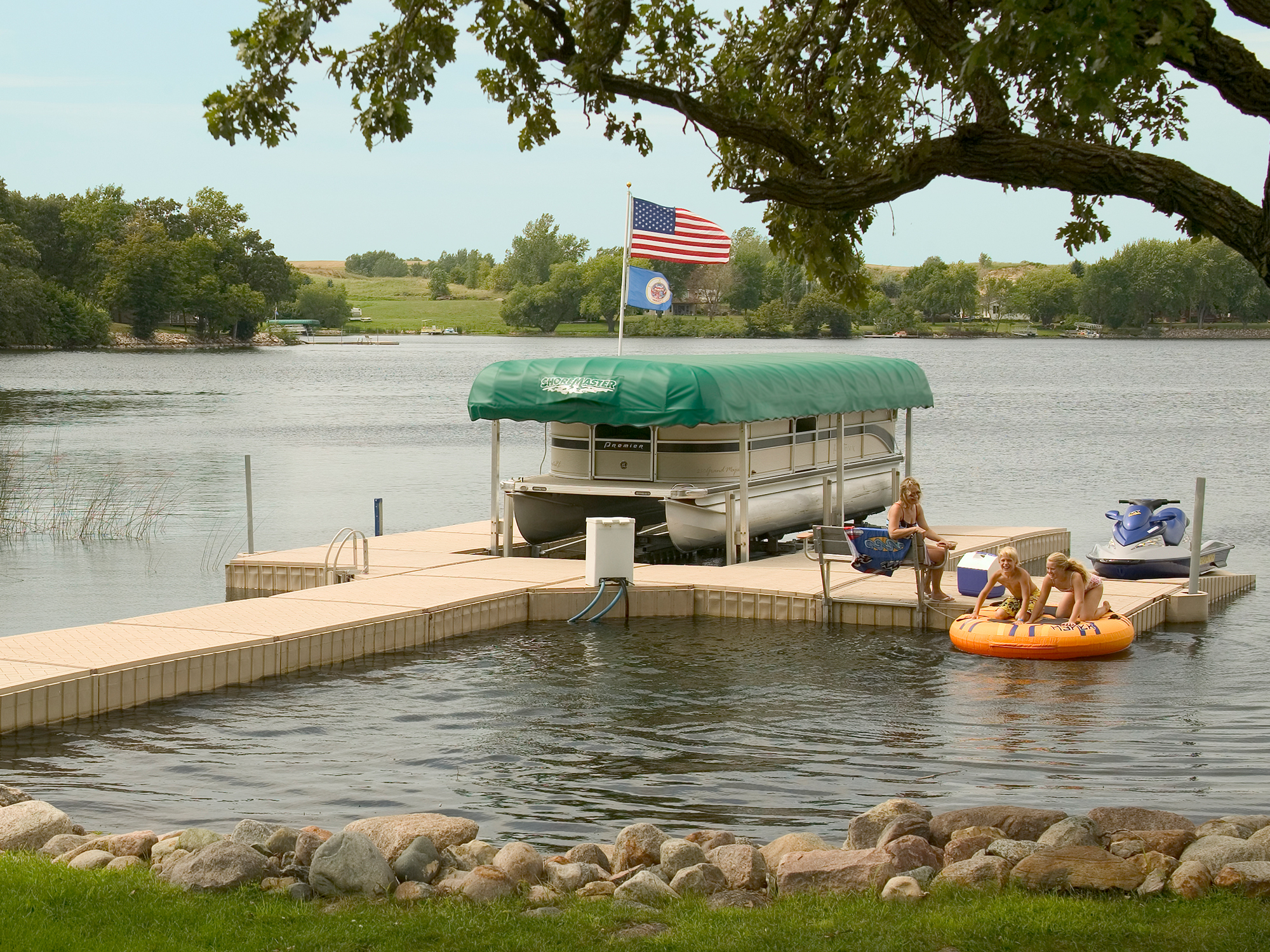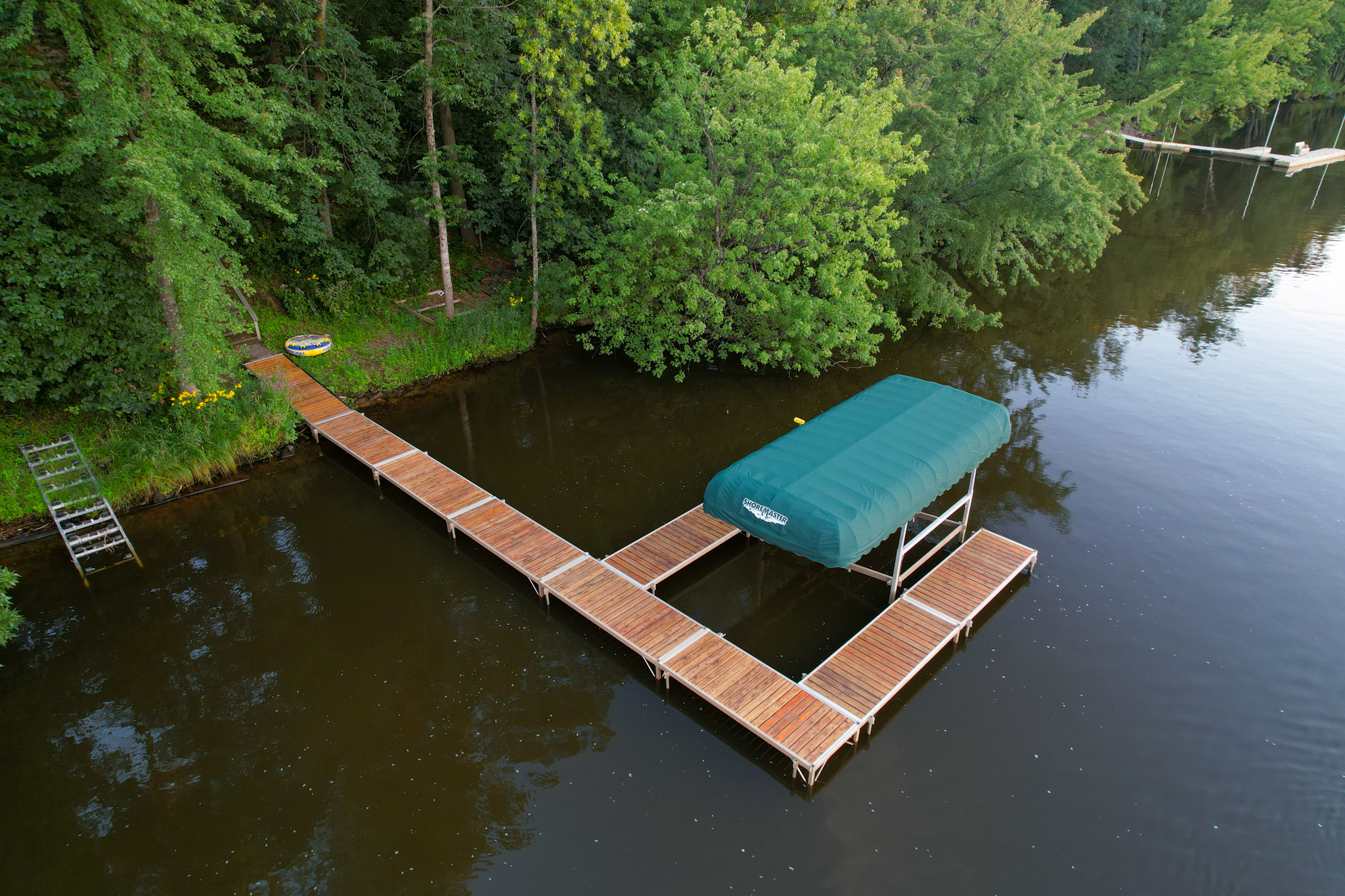Discover the Advantages of Picking a Floating Docks Remedy for Your Beachfront Property
The Ultimate Overview to Selecting the Finest Floating Docks
Selecting the optimal floating dock requires a comprehensive understanding of various elements that influence both efficiency and durability. Aspects such as dock kinds, materials, and necessary attributes substantially affect your decision-making process.
Comprehending Floating Dock Types
When choosing a drifting dock, it is important to understand the numerous types available, as each offers unique objectives and applications. Floating docks mostly fall under three classifications: modular, stationary, and pontoon docks.
Modular docks are composed of private sections that can be conveniently set up or reconfigured, making them suitable for transforming water degrees and varied usages, such as business procedures or recreational activities. Their adaptability permits for customization based upon certain requirements.

Pontoon docks are characterized by their buoyant framework, usually composed of several pontoons that supply stability and assistance. They are especially well-suited for bigger vessels and are generally used in marinas or for waterside buildings. Understanding these kinds aids in selecting one of the most suitable floating dock to fulfill particular needs, ensuring optimum functionality and safety and security.
Secret Products for Durability
Choosing the ideal materials for floating docks significantly impacts their resilience and longevity. The most common materials include timber, plastic, metal, and composite products, each offering unique advantages and constraints.
Wood, frequently favored for its visual allure, calls for normal upkeep to endure dampness and decay. Pressure-treated lumber can enhance resistance to rot, however it may still be prone to insects and weathering.

Plastic docks, made from high-density polyethylene (HDPE), are immune to rust, UV radiation, and impact, making them a prominent selection for seaside settings. Their lightweight nature likewise promotes simple installment and relocation.
Steel docks, commonly constructed from light weight aluminum or galvanized steel, supply phenomenal strength and toughness. They are immune to corrosion, specifically when dealt with, but might require added insulation to prevent heat accumulation in warm climates.
Composite materials, combining timber fibers and plastics, deliver the benefits of both timber and plastic, withstanding dampness and fading while calling for minimal maintenance. - floating dock company
Inevitably, the option of products ought to line up with ecological problems, planned use, and maintenance preferences to ensure the floating dock remains practical and aesthetically pleasing with time.
Necessary Attributes to Consider
While the option of products is essential, thinking about crucial features for floating docks is equally important to make certain ideal efficiency and individual complete satisfaction. One essential function to evaluate is the dock's buoyancy capacity, which determines just how much weight it can support without submerging. floating docks. This is vital for accommodating watercrafts, individual boat, and even recreational tasks
Furthermore, mobility is a considerable factor to consider. Depending on your demands, you may want a dock that is easy to transfer and disassemble, particularly if you plan to transfer it seasonally. Stability is an additional necessary attribute; a properly designed floating dock ought to minimize movement caused by wind and water currents, offering a safe platform for individuals.
Safety and security features, such as non-slip surfaces and rounded sides, are likewise critical to stop accidents, particularly in wet problems. Furthermore, consider the schedule of accessories, such as ladders, bumpers, and cleats, which can Find Out More improve the functionality of your dock.
Setup and Maintenance Tips
Establishing and maintaining a floating dock requires mindful planning and attention to detail to guarantee its durability and optimum performance. Begin by selecting a proper area that reduces direct exposure to strong currents and waves, which can create deterioration. Guarantee that the water depth is enough for the dock's height and that it is secured securely to stop movement.
During setup, comply with the maker's standards closely, as improper setting up can endanger security. Use top notch products resistant to rust, such as aluminum or treated timber, to boost sturdiness. Regularly examine all elements, consisting of floats, connectors, and anchoring systems, for signs of damages or wear.
If your dock uses flotation protection tools, ensure they stay free and undamaged from punctures. By adhering to these installation and maintenance pointers, you can take pleasure in a functional and trusted floating dock for years to come.
Budgeting for Your Dock
Budgeting for your dock is an essential step that can considerably affect your total fulfillment and investment in a waterfront residential property. Establishing a clear budget plan assists you navigate the various options available and guarantees you make educated decisions that line up with your economic capabilities.
Begin by identifying the size and style of the dock you need, as these elements will considerably influence the cost. Floating docks can differ significantly in cost, depending upon products, buoyancy, and functions like ramps and devices. Research various manufacturers and suppliers to contrast rates and comprehend the market value.
In addition to initial prices, think about ongoing expenditures such as upkeep, insurance coverage, and potential repair services. Allocate funds for these reoccuring prices to prevent shocks down the line. It's additionally sensible to allocate any type of essential authorizations or inspections, which may be required by regional guidelines.
Last but not least, bear in internet mind the possible roi. A well-planned dock can improve your residential property's value and charm, giving a positive financial impact in the long-term. By budgeting properly, you can guarantee that your dock satisfies your needs without jeopardizing your economic security.
Conclusion
To conclude, selecting the excellent floating dock demands a thorough analysis of different elements, consisting of dock types, products, necessary functions, and installment processes. Focusing on sturdiness and conformity with regional laws ultimately boosts functionality and property value. Cautious factor to consider of budgetary restrictions will certainly even more make sure an audio investment. By adhering to these standards, individuals can make educated choices that advertise long-term fulfillment and functionality in marine environments.

While the option of materials is vital, considering crucial attributes for floating view it docks is equally essential to make sure optimum performance and individual fulfillment.Setting up and preserving a floating dock requires careful planning and focus to information to guarantee its long life and optimum efficiency. Floating docks can vary considerably in cost, depending on materials, buoyancy, and features like ramps and accessories.In final thought, choosing the optimal floating dock necessitates an extensive analysis of numerous aspects, including dock types, products, important attributes, and installation procedures.